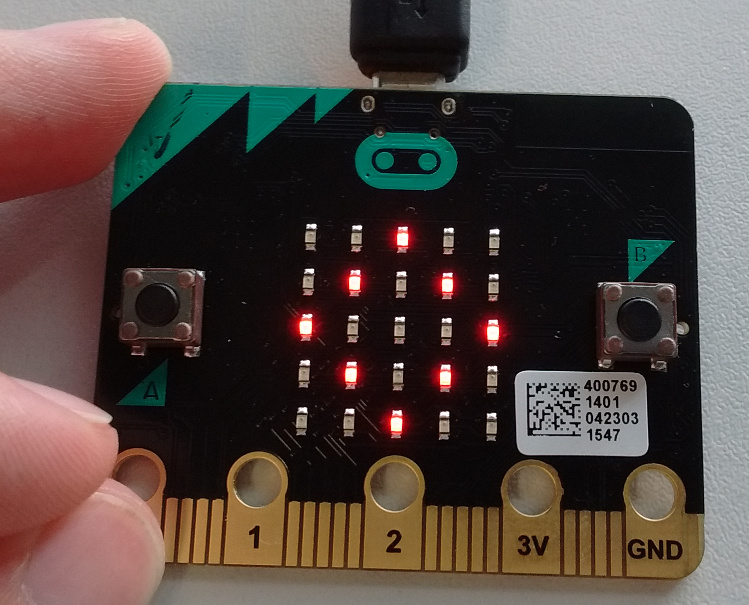The micro:bit is a single-board computer designed by the BBC as a way to learn about programming. It is being delivered to all year seven students (11-12) in the UK.
The micro:bit has a 5x5 grid of red LEDs, two buttons, an accelerometer and a compass. There are also pins to connect components like motors or speakers.
MicroPython is a variant of the Python programming language that runs on such tiny computers. It's a powerful way to program the micro:bit. For tutorials and reference information, see BBC micro:bit MicroPython.
Jupyter is a set of tools for interactive programming. This package allows Jupyter interfaces to run MicroPython code directly on the micro:bit.
Set-up steps:
Plug in your micro:bit and ensure it has MicroPython on it. To do this, create a Python script in the web editor, and follow the instructions there to flash it onto the micro:bit. It doesn't matter for this what the script does.
Depending on your system, you may need some extra setup so that the kernel can talk to your micro:bit using a serial port.
- On Linux, you may need to add yourself to the dialout group.
Run
sudo usermod -a -G dialout <your-username>, then log out and in again. - On Windows, you need to install the mbed driver.
- On Linux, you may need to add yourself to the dialout group.
Run
Install this package:
pip install ubit_kernel python3 -m ubit_kernel.install
When you start the Jupyter Notebook, there should be a micro:bit option in the menu to create a new notebook.
To use the kernel from other Jupyter interfaces, start them with --kernel ubit.
See also nodemcu_kernel, which provides a MicroPython kernel on the NodeMcu platform, using code adapted from this project.
